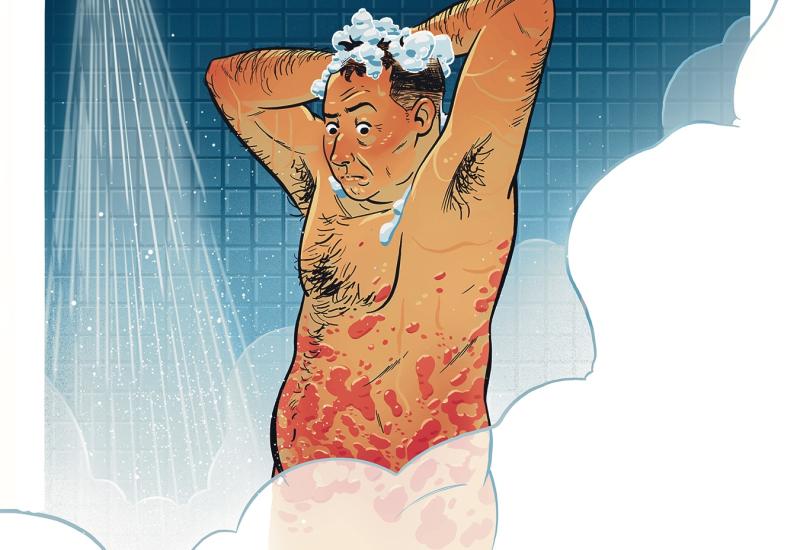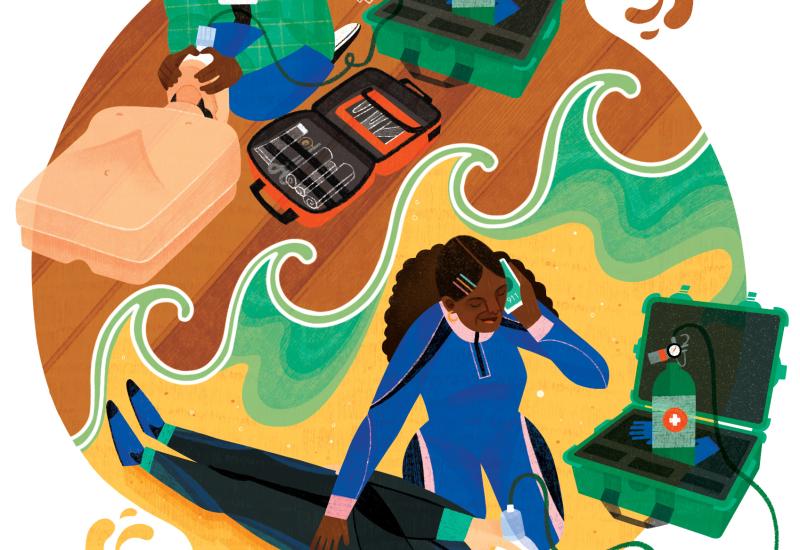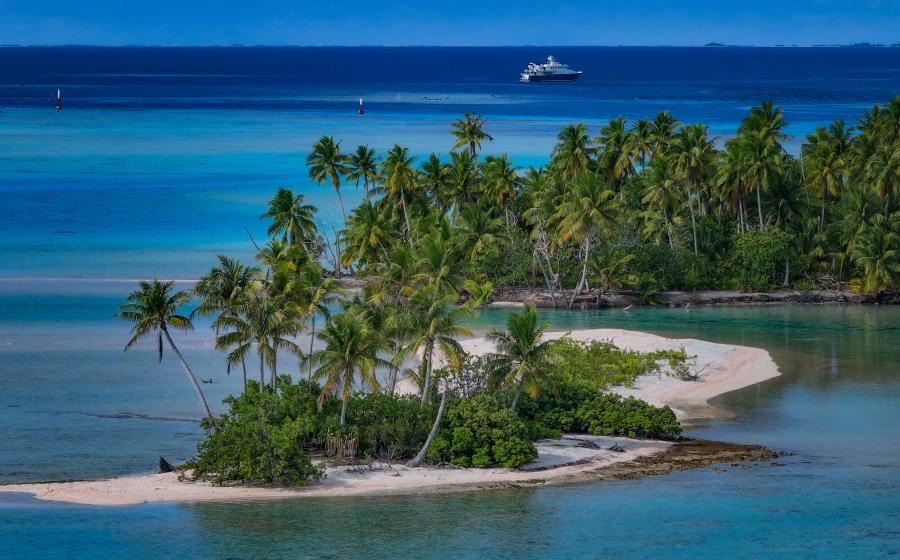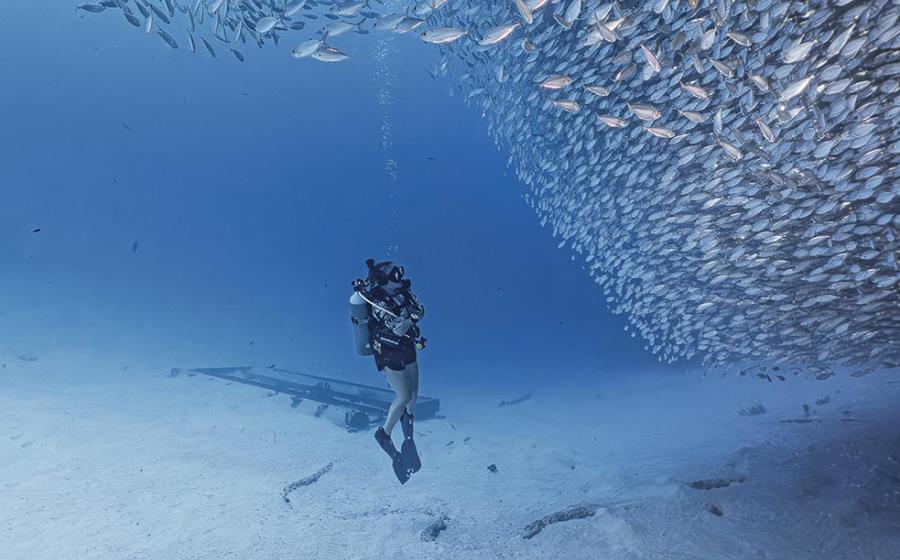Should we Spearfish?

Spearfishing — A Global Benefit
By Dean Travis Clarke Dean Travis Clarke has been a marine journalist for 22 years and is the executive editor of Bonnier Corporation’s Sport Fishing magazine. He currently serves on the National Advisory boards of BOAT/US and the Recreational Fishing Alliance and the National Safe Boating Advisory Council. Man has been a hunter/gather ever since he stopped walking on all fours — or perhaps even earlier. Nature dictates that some beasts eat and others get eaten. So let’s just take as a given that for the foreseeable future humans will continue to eat other creatures such as fish, fowl, beef and pork. No need to delve into Andrew Zimmern’s world. So … moving on. The state of fisheries on a global scale has never been in more dire straits. The commercial-fishing industry has the technology to literally vacuum every last fish out of the oceans. And since man seems not to learn from history when revenue is involved, in our lifetime, we might well see the oceanic version of the last buffalo. The reason for much of this problem stems from the use of indiscriminate fishing gear. In other words, types of fishing nets or lines that don’t target just one particular species, but rather catch everything . And of course, by the time most of this catch comes aboard the fishing vessel, it is dead. So it simply gets tossed back into the sea to be used as forage for other creatures or to rot. The somewhat inoffensive scientific term for this? Bycatch. So obviously, the absolute best way to provide one’s family with fresh seafood in the most efficient and nonthreatening manner requires you to be much more selective. And spearfishing represents the most selective form of fishing known to man short of farming fish, which has its own host of environmental problems. How much more selective can one possibly be than to go into the realm of your prey, pick one particular fish of the exact size and species you want, and then take it ? You take only what you plan to use in the near term. You harm nothing else in the process. Another positive aspect of spearfishing few realize is the difference in the quality of the flesh between netted or hook-and-line-caught fish and speared fish. The physiology of it is such that netted and hook-caught fish fight and thrash and usually die more slowly, causing an increase in lactic acid in the muscle tissue. This degrades the quality of the flesh for eating. Harpooned and speared fish don’t suffer from this quality degradation since (especially if you’re a good shot) death comes instantly. Are there negatives to spearfishing? Of course, just like there are negatives to chocolate and fine red wine But the negatives stem more from the inherent danger of inexperienced or careless spearfishermen misusing their equipment or not utilizing common sense. And that creates danger in just about every situation, not just spearfishing. Spearfishing answers virtually every negative involved in the harvesting of fresh fish — ecological, resource conservation and quality of the product. Too bad we can’t find more solutions to our world’s problems as effective as this one.
Spearfishing Has Its Limits
By Tim McClanahan Tim McClanahan is a Senior Conservation Zoologist with the Wildlife Conservation Society. He focuses on ecology, fisheries and management of coral reefs. Most recently, he has been investigating the interaction between climate change, fishing gear and the capacity of people to adapt to these changes. Spearfishing does have a number of benefits, including high selectivity, capturing larger fish and creating an unparalleled visceral connection to the environment. But these potential advantages are also part of the larger problem facing depleted fisheries, with the loss of more mature breeding fish and the taking of species that are critical to marine ecology. Selectivity is great, but it can also cause seldom-fished species to become targets. In fact, our surveys of fish catches by gear in the tropical countries of Kenya and Papua New Guinea show that spear guns consistently catch the largest variety of species compared with other types of fishing gear. Although you could argue that this is a way to capture underutilized fisheries species, it also has the potential to reduce the diversity of fish in an area, particularly if these newly targeted species are slow to recover. Some slow-recovering species, including many triggerfish and parrotfish, play important roles in marine ecosystems by feeding on organisms that cause problems for the reef, such as loss of coral by starfish, intense grazing and erosion by sea urchins, and death of corals by proliferating algae. These ecological problems have been either caused or exacerbated by the loss of species that assist their recovery. With spear guns, these fish are more easily caught, making the guns one of the pieces of gear most responsible for the decline in these species numbers, and therefore the loss of ecological services. Capturing larger individuals is generally a good way to manage fisheries, and I have encouraged spear guns as an alternative to small-mesh nets that basically snag everything in heavily depleted areas where small fish are regularly taken. But while the spear guns give fish more time to grow, increasing their production, reproduction and the fisherman’s income, this is really a stopgap management for severely depleted fisheries and not a long-term approach. Large fish are the ecosystem’s breeding powerhouses, and this observation has often resulted in slot-limit management systems for some species, which allows the capture of individuals only of medium size. This allows the oldest breeders to carry on the important role of reproduction, and some fisheries even close certain areas where these big fish can recover and breed. So the logical thing would seem to be to tell people to spearfish only in areas that have functioning fisheries closures, slot limits and species selectivity restrictions, right? But compliance with these nuances cannot realistically be enforced because of limited finances for fisheries managers, lack of agreements between mangers and resource users, and ignorance or plain disrespect for the laws by fishers. So spearfishing will continue to take essential species to the survival of reefs unless you ban the guns altogether. But let me say that the visceral connection with nature is something I strongly encourage, and it is largely responsible for the support of wise management and self-regulation among hunters and fishermen. But I would like to encourage photography as an alternative means to that end. It creates the same connection between man and nature when you actively search out a particular fish and strive for a compelling composition and creative lighting. Now, I’m not talking about taking a few poor snaps to record your dive, but instead really enjoying the hunt and taking great shots. For me, it really can bring a dive alive, and it has already replaced spearfishing in many of the places where slow-recovering species have been depleted.
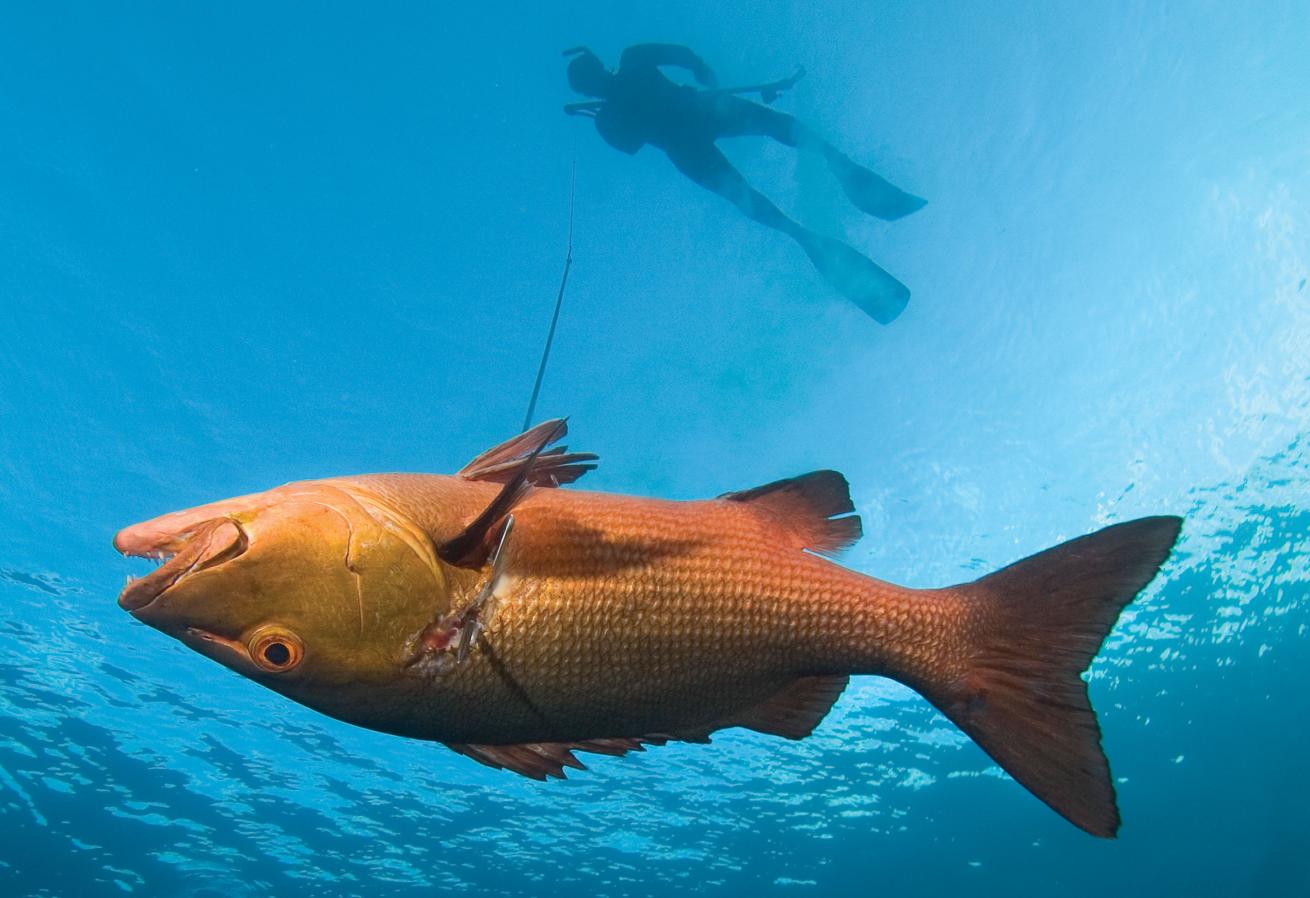
Spearfishing — A Global Benefit
By Dean Travis Clarke Dean Travis Clarke has been a marine journalist for 22 years and is the executive editor of Bonnier Corporation’s Sport Fishing magazine. He currently serves on the National Advisory boards of BOAT/US and the Recreational Fishing Alliance and the National Safe Boating Advisory Council. Man has been a hunter/gather ever since he stopped walking on all fours — or perhaps even earlier. Nature dictates that some beasts eat and others get eaten. So let’s just take as a given that for the foreseeable future humans will continue to eat other creatures such as fish, fowl, beef and pork. No need to delve into Andrew Zimmern’s world. So … moving on. The state of fisheries on a global scale has never been in more dire straits. The commercial-fishing industry has the technology to literally vacuum every last fish out of the oceans. And since man seems not to learn from history when revenue is involved, in our lifetime, we might well see the oceanic version of the last buffalo. The reason for much of this problem stems from the use of indiscriminate fishing gear. In other words, types of fishing nets or lines that don’t target just one particular species, but rather catch everything . And of course, by the time most of this catch comes aboard the fishing vessel, it is dead. So it simply gets tossed back into the sea to be used as forage for other creatures or to rot. The somewhat inoffensive scientific term for this? Bycatch. So obviously, the absolute best way to provide one’s family with fresh seafood in the most efficient and nonthreatening manner requires you to be much more selective. And spearfishing represents the most selective form of fishing known to man short of farming fish, which has its own host of environmental problems. How much more selective can one possibly be than to go into the realm of your prey, pick one particular fish of the exact size and species you want, and then take it ? You take only what you plan to use in the near term. You harm nothing else in the process. Another positive aspect of spearfishing few realize is the difference in the quality of the flesh between netted or hook-and-line-caught fish and speared fish. The physiology of it is such that netted and hook-caught fish fight and thrash and usually die more slowly, causing an increase in lactic acid in the muscle tissue. This degrades the quality of the flesh for eating. Harpooned and speared fish don’t suffer from this quality degradation since (especially if you’re a good shot) death comes instantly. Are there negatives to spearfishing? Of course, just like there are negatives to chocolate and fine red wine But the negatives stem more from the inherent danger of inexperienced or careless spearfishermen misusing their equipment or not utilizing common sense. And that creates danger in just about every situation, not just spearfishing. Spearfishing answers virtually every negative involved in the harvesting of fresh fish — ecological, resource conservation and quality of the product. Too bad we can’t find more solutions to our world’s problems as effective as this one.
Spearfishing Has Its Limits
By Tim McClanahan Tim McClanahan is a Senior Conservation Zoologist with the Wildlife Conservation Society. He focuses on ecology, fisheries and management of coral reefs. Most recently, he has been investigating the interaction between climate change, fishing gear and the capacity of people to adapt to these changes. Spearfishing does have a number of benefits, including high selectivity, capturing larger fish and creating an unparalleled visceral connection to the environment. But these potential advantages are also part of the larger problem facing depleted fisheries, with the loss of more mature breeding fish and the taking of species that are critical to marine ecology. Selectivity is great, but it can also cause seldom-fished species to become targets. In fact, our surveys of fish catches by gear in the tropical countries of Kenya and Papua New Guinea show that spear guns consistently catch the largest variety of species compared with other types of fishing gear. Although you could argue that this is a way to capture underutilized fisheries species, it also has the potential to reduce the diversity of fish in an area, particularly if these newly targeted species are slow to recover. Some slow-recovering species, including many triggerfish and parrotfish, play important roles in marine ecosystems by feeding on organisms that cause problems for the reef, such as loss of coral by starfish, intense grazing and erosion by sea urchins, and death of corals by proliferating algae. These ecological problems have been either caused or exacerbated by the loss of species that assist their recovery. With spear guns, these fish are more easily caught, making the guns one of the pieces of gear most responsible for the decline in these species numbers, and therefore the loss of ecological services. Capturing larger individuals is generally a good way to manage fisheries, and I have encouraged spear guns as an alternative to small-mesh nets that basically snag everything in heavily depleted areas where small fish are regularly taken. But while the spear guns give fish more time to grow, increasing their production, reproduction and the fisherman’s income, this is really a stopgap management for severely depleted fisheries and not a long-term approach. Large fish are the ecosystem’s breeding powerhouses, and this observation has often resulted in slot-limit management systems for some species, which allows the capture of individuals only of medium size. This allows the oldest breeders to carry on the important role of reproduction, and some fisheries even close certain areas where these big fish can recover and breed. So the logical thing would seem to be to tell people to spearfish only in areas that have functioning fisheries closures, slot limits and species selectivity restrictions, right? But compliance with these nuances cannot realistically be enforced because of limited finances for fisheries managers, lack of agreements between mangers and resource users, and ignorance or plain disrespect for the laws by fishers. So spearfishing will continue to take essential species to the survival of reefs unless you ban the guns altogether. But let me say that the visceral connection with nature is something I strongly encourage, and it is largely responsible for the support of wise management and self-regulation among hunters and fishermen. But I would like to encourage photography as an alternative means to that end. It creates the same connection between man and nature when you actively search out a particular fish and strive for a compelling composition and creative lighting. Now, I’m not talking about taking a few poor snaps to record your dive, but instead really enjoying the hunt and taking great shots. For me, it really can bring a dive alive, and it has already replaced spearfishing in many of the places where slow-recovering species have been depleted.


